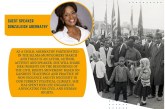
The City of Davis Human Relations Commission will be hosting the Third Annual Breaking the Silence event on Saturday, February 28 from 1:00 to 3:00pm in Community Chambers, 23 Russell Blvd, Davis, CA 95616. This event is designed to create dialogue between members of the Davis community and entities that serve the public, in the hope that causes of and solutions to discriminatory interactions can be discussed and addressed, and a more inclusive community climate established.
The format for this meeting will begin with a poster session in the lobby and conference room of the Community Chambers building from 1:00 to 1:30pm. Institutions and community organizations can showcase their efforts, over the course of the past year, to make a more inclusive community. Following, from 1:30 to 3:00pm, a panel of representatives from the various institutions in our community, will provide brief explanations about the work of their organization. The floor will then be opened up to the public to allow an opportunity to address questions, comments and concerns. Participants are encouraged to let their voices be heard.
The commission hopes that “Breaking the Silence” will:
- Allow participants to share their stories;
- Allow participants to discuss whether existing public policies are sufficient to address indifference, discrimination and violence based upon hate;
- Help the public understand the components that sustain bias in our community; and
- Continue and advance community dialogues on discrimination
Questions about the event can be directed to Commissioner Nathan Ellstrand at nathanellstrand@gmail.com or 951-505-4476.






I hope no sign in is required. Many years ago when I experienced trouble with Dixon law enforcement, members of Yolo county law enforcement, and sac co sheriff, I was too fearful of them to let my identity be known…especially when they handcuffed me for no good reason whatsoever other than I respectfully asked one of them a question. I would attend an event such as this only if I disguised my identity at the meeting. It is impossible to determine if relatives of law enforcement are present. It is impossible to know for sure that everyone in the room has a true spirit of making your community a better place. I do not mean to scare anyone away from these meetings. They serve a very important purpose.
Maybe Greenwald and …the … Human Relations Commission could improve race relations in Davis by no longer falsely accusing people of racism or insinuating they are racists when his charges are false per usual, and in cases where [they] have done this sort of harm in the past, maybe they will apologize.
[moderator] edited for language
mr. rifkin continues his incomprehensible rant… yawn.
DP, your post is a good opportunity to point out the newest feature of the Vanguard … the “Report comment” feature, which will allow the Vanguard to be more quickly aware of comments that individual readers feel go beyond the pale (or is it the pail?). It also give all registered Vanguard readers an avenue for voicing their concerns … an avenue that really didn’t exist prior to the addition of this feature.
Rich, I have no stake in this civil war between you and David, but as best as I can tell the first “shot across the bow” regarding the issues/events you are referring to came on December 10, 2014 in your Enterprise column entitled “How historic names came to The Cannery.” In that article you stated:
When I read those last three words of yours, it appears that it wasn’t the Human Resources Commission that introduced the subject of racism into the public dialogue, but rather you yourself. Perhaps if there is any apology due to you, it should come to Rich Rifkin from Rich Rifkin. That is known to happen when you choose to take the opening shot in a dialogue, and include the expression “for racial reasons” in that opening salvo.
With that said, I remember filling out my 2010 Census Questionnaire and Question 5 asked me “Is this person of Hispanic, Latino, or Spanish origin? and Question 6 asked me “What is this person’s race?” In your opinion, does the presence of those two questions warrant accusing the Census Bureau of racism or insinuating that the Census Form is racist in nature? As you ponder that question you may want to consider the fact that the City of Davis form that was associated with the Cannery street naming process was dealing with what you are calling “race” as simply a demographic identifier in a data set.
“it appears that it wasn’t the Human Resources Commission that introduced the subject of racism into the public dialogue, but rather you yourself.”
Matt,
This is the third time you have made this bogus argument on the vanguard. And you know it is false, because you know everything you quote me saying “about race” came from what the Human Relations Commission wrote. It was Greenwald and his pals who made up a list of names–nearly a year before the decision was made–and placed its suggestions in three categories: race, gender and civil rights. And both people that were given street names in the Cannery were picked from the HRC’s race category. And all I did in my column was report how those two names were picked–that is, they were chosen for racial reasons. But when I reported that, David Greenwald writes a b.s. letter to The Enterprise where he insinuates that I was a racist because I had the gall to note that the two names selected from the HRC list were picked for racial reasons, which is sadly true.
And because I am highly offended by Greenwald’s false charge, I am not going to let this go. [moderator] edited for language. He has a history of doing this sort of thing. And no one seems to want to call him on it. But I am calling Greenwald on it. And that is that until he apologizes.
New to this topic. I’d think if the names were related to the Cannery and history, we might honor legendary farmers, important ag researchers, the person who developed a special tomato breed, and maybe even someone who ran a local vegetable stand or made a famous local dish.
I’d figure most of the PC business would be handled by MLK Day, Cesar Chavez Day, etc.
BTW, how many Black writers pen articles for the Vanguard? First time I’ve ever wondered …
Rich, so far all you have provided is rhetoric. Based on what you have said, you appear to have a HRC document that categorized the names as you have stated. Scan that document and post it here in the Vanguard. If you have any problem with the technical aspect of such an image posting then either e-mail me (you have my e-mail from past communications between us on other issues), or e-mail the scanned image to Don Shor and he will post it so that everyone can see what you have represented to be evidence of the Human Resources Commission’s bad actions.
Until you do that, your December 10, 2014 column in the Enterprise is the oldest piece of evidence available to the citizens of Davis regarding this feud between you and David.
As much as Rich and I disagree on many things, and despite the high probability that Rich would want to distance himself from my supporting him on any issue (toxic to him as me being a public employee, toxic to others when my emotions run away from my logic) I feel a need to defend his facts (without defending his rhetoric, while some of mine is undefendable), I feel I must defend his “problem” with HRC on street naming. I’ve seen streets named, then un-named based on “bigotry”/reverse bigotry (or PC-ness). Here in Davis. We keep the name of streets named “Conquistador”, “Anza”, “Balboa”, “Arnold”, Burr”, etc. We have Kennedy Place (where are the anti-womanizing protesters?), yet we purge names like Teller (OK, staff didn’t realize he wasn’t dead, but he is now), and Sutter.
When should we re-name Holmes in favor of a non-‘white’, minority (or LGBT) female? Same with Emerson. For some, suspect it should be sooner than later
The political correctness thing is very alive in Davis. Rich has pointed out an “uncomfortable truth”.
pierce, I understand your perspective, and agree with you that political correctness is very alive in Davis. However, the specifics of this particular vendetta that Rich is pursuing against David goes way beyond looking at an “uncomfortable truth.” Given the tenacity of Rich’s last post I took the time to track down the public documents which would either confirm or refute Rich’s claim that it was the Human Relations Commission that introduced “race” into the public dialogue. The following three links take us to those public record documents, and they speak for themselves with respect to any reference to “race.”
http://city-council.cityofdavis.org/media/default/documents/pdf/citycouncil/human-relations-commission/minutes/2014/minutes-2014-04-24-human-relations-commission.pdf
http://city-council.cityofdavis.org/media/default/documents/pdf/citycouncil/councilmeetings/agendas/20140826/05-n-2-minutes-hrc-may22-jun26-spc-2014.pdf
and most importantly
http://city-council.cityofdavis.org/media/default/documents/pdf/citycouncil/councilmeetings/agendas/20140527/05b-historic-street-names.pdf
Once you have had a chance to review these public record documents I think you will see that the Human Resources Commission never introduced the words “race” or “racist” or “racism” into the community dialogue.
Since when has there been silence?
It’s a continual unending topic that is often raised without investigation or corroboration. Why do x children score below y children in school? Oh, it must be racism. Don’t look at higher truancy rates, don’t look at more time spent watching TV, don’t look at less time studying, don’t look at peer pressure, play The Card.
“Since when has there been silence?”
a lot of people impacted by racism or possible racism in this community have been afraid to speak out. the vanguard ran a story on a large number of parents with inter-racial children eventually leaving the school district.
“Why do x children score below y children in school? Oh, it must be racism. ”
most people looking at the achievement gap are not claiming it’s racism. at the same time, how do you ignore a persistent pattern over time? “Don’t look at higher truancy rates, don’t look at more time spent watching TV, don’t look at less time studying, don’t look at peer pressure, play The Card.” but all of that ignores a critical question – why would racial issues underlie those even if they’re present? in other words, let’s say black student have higher truancy rates than white students, why is that? so putting the blame on truancy doesn’t actually answer the question.
Can you link to that article, I’d like to read it.
We do know that the ineffective California educational establishment finally came out with a report which indeed showed a higher truancy rate for African American children in lower grades.
Why is that? I guess you’ll have to ask the parent or parents. I’m not sure I’d call it a “racial issue”. I’d call it a fact that needs addressing if a particular group wants to increase test scores and academic achievement. I sure wouldn’t call it racism unless someone has something far more concrete.
I believe this is the article DP is referring to: http://www.davisvanguard.org/2014/09/special-commentary-unaddressed-problems-for-child-of-color-in-djusd/